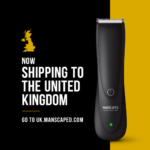With Global Recycling Day on 18 March, Robert Lockyer, CEO and Founder of luxury packaging provider Delta Global, argues that brands stuck between the rock of climate catastrophe and the hard place of reputational risk should embrace innovation to put recycling at the heart of their model.
We have all seen the staggering reports about plastic pollution of the oceans, with the latest estimates suggesting as many as 12.7 million tonnes are added annually to our seas.
Looking at the fashion industry, the figures aren’t circulated as readily but they’re equally eye-watering – it is believed, for example, that over 39 million tonnes of textiles go into landfills each year.
There are signs, however, that some of the biggest names around are moving in an encouraging direction.
Sportswear leader Nike has recently created its space hippie sneaker line – vegan sneakers with the lowest carbon footprint of any shoe the brand has produced to date and made from recycled materials which would otherwise have ended up in a landfill.
Another global behemoth, beverage group Coca-Cola, has this year begun producing bottles from 100% recycled plastics, launching the initiative in Sweden with label messages encouraging customers to ‘recycle me again’.
As well as beauty leader L’Oreal has responded to the pushes and pulls towards greater sustainability and committed to purchasing 100% recycled PET resin for all its packaging needs.
In the world of fashion, there are also encouraging signs. The high street retailer Zara has committed to making all of its collections from 100% sustainable fabrics by the start of 2025. Zalando says its private label Zign will from now on be fully dedicated to sustainability, starting with a Spring/Summer 2020 collection of garments made with either 50% or more sustainable materials or a minimum of 20% recycled content.
And the sense of urgency was thrown into sharp relief when none other than legendary fashion designer Tommy Hilfiger suggested in a recent interview that “in two or three years if a brand is not sustainable, it will be out of business.”
So, it looks like things are moving in the right direction but the question remains – what kind of things could your business be doing to make a substantive difference? That is the subject of an ongoing discussion here at Delta Global. The truth is there are several things you can do but often they rest on your ability to apply a bit of creative thinking. We came up with a good initiative recently, when we partnered with MatchesFashion to overhaul its signature marble box completely and produce its Eco-Luxe box which is now 100% recyclable.
We developed a bespoke solution which used perforation points in the box to enable customers to remove the magnetic closures when they eventually decide to get rid of the box. The new model is made from FSC-certified materials with a water-based finish and detachable magnets. That means the boxes are 100% recyclable and reusable.
I believe people must see the opportunity in waste. For example, educating your supply chain using data and automation processes, you can reduce waste and disposal costs.
But, by monitoring that waste production, you can also then monetise it and cleverly recycle waste into new packaging and even new clothing.
As another example, if you can reclaim paper cut-offs and recirculate them back into production, you can turn them into branded inserts or paper handles for a fraction of the cost. Why not do what The Hand Dyed Shoe Company does and create bespoke, luxury shoes out of scrap leather? Using sustainably sourced leather, the company creates unique and made-to-order items all whilst minimising its waste.
Of course, there are many plastics and waste which are not suitable for your household recycling bin, as they don’t have the correct symbol and your local council won’t accept them. And little extras like caps, pumps and plastic-coated cardboard make it difficult for you to recycle.
However, some people with bright ideas are bringing new solutions to market. TerraCycle, for example, will collect your hard-to-recycle waste – such as beauty and skincare containers – and then turn it into raw material for new products. TerraCycle has drop-off points around the UK and stores like L’Occitane and The Body Shop will also accept empty, clean and dry packaging from any brand and pass it on, often offering rewards to customers returning hard-to-recycle plastics.
The leading global platform for pre-owned luxury fashion, Vestiaire Collective, is striking up partnerships that will crucial to creating a cultural shift in the way we think about fashion. Recently, the group joined with luxury Italian jeweller Pomellato – under global leader Kering – in a three-month campaign that rewarded customers with a 10% off voucher for selling their pre-owned pieces on the resale platform. The designer described the initiative as ‘an opportunity to extend the lifespan of pre-loved Pomellato pieces and start a new love affair with this season’s collection.’
Rewarding customers in this way aims to instil subconscious sustainable behaviours in buyers but we also must teach shoppers about the systems on offer. Whether that’s take-back programmes, discounts on new purchases or even charitable donations to clean up our environment, there’s plenty that can be done.
With corporations finally coming under pressure both from governments and from growing consumer demand for eco-friendly alternatives, businesses should set realistic targets commensurate with their size and turnover in order to sustain our future. Brands need to dedicate themselves to a ‘recyclable’ revolution. This year, we’ve witnessed brands of all kinds implementing interesting initiatives in pursuit of the greater good.
Ground-breaking brands like Candiani Denim are even instigating change in industries that haven’t changed for decades. This year, for instance, they created a plant-based and bio-degradable alternative to the everyday pair of jeans.
From smaller acts that help clean up our environment, from local litter picks right through to newly designed packaging and fashion, we must intensify our efforts to source recyclable and biodegradable materials. But we must also do everything we can to make green thinking our default.
Nike, Coca-Cola, and L’Oreal are winners of the World Branding Awards. For more information about the World Branding Awards, click here.


